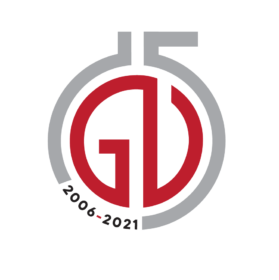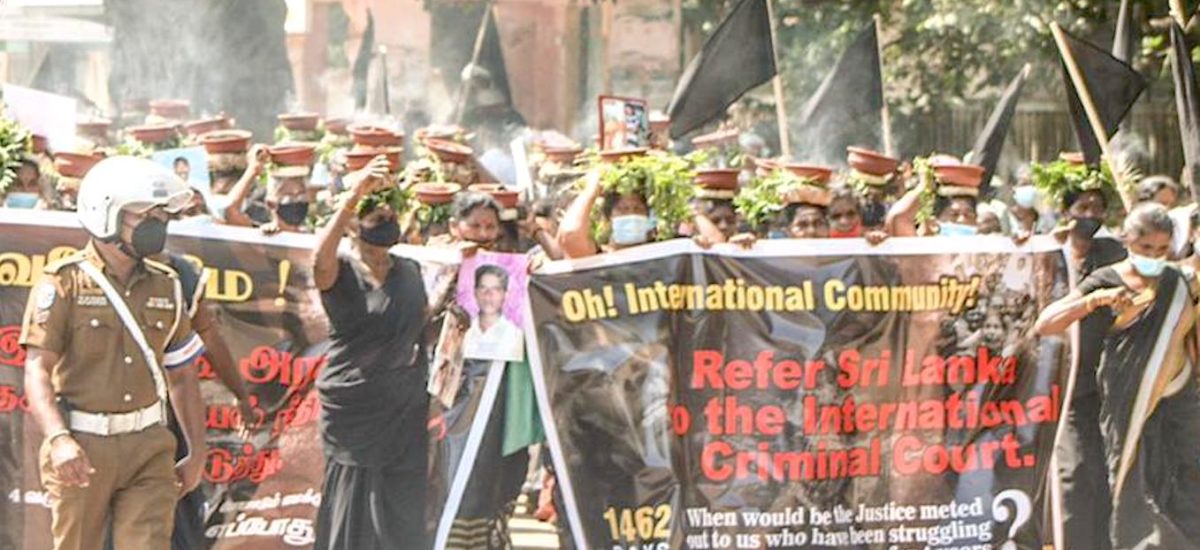Photo courtesy of Kumanan Kanapathippillai
At its 46th sessions, the UN Human Rights Council (HRC) will be debating the resolution on Sri Lanka that has many observations and recommendations.
The recommendations made will pose a number of issues for the Sri Lankan government as well as to the HRC itself. They require a different form of discourse on the human rights problems from the kind of discussions held in the past.
The main thrust will be centered around the proposed resolutions, one of which gives the orientation of the discourse.
“OP7: Expresses serious concern over emerging trends over the past year, which represent clear early warning signs of a deteriorating human rights situation in Sri Lanka, including the accelerating militarization of civilian government functions, erosion of the independence of the judiciary and key institutions responsible for the promotion and protection of human rights, ongoing impunity and political obstruction of accountability for crimes and human rights violations in “emblematic cases”, policies that adversely affect the right to freedom of religion or belief, surveillance and intimidation of civil society and shrinking democratic space, arbitrary detentions, allegations of torture and other cruel, inhuman degrading treatment or punishment and sexual and gender based violence, and that these trends threaten to reverse the limited but important gains made in recent years and risk the recurrence of policies and practices that gave rise to the grave violations of the past;”
In terms of this proposal, the HRC warns that there are signs of a deteriorating human rights situation. That particular statement is nothing new; the human rights situation has been progressively deteriorating for a long time. UN human rights bodies, including the HRC itself, have repeatedly noted this state of affairs, so what the current observation means is that matters have worsened even further to a point of great magnitude and significance.
Militarization
The HRC comments on the acceleration of militarization of civilian government functions. Opposition politicians, the media and civil society organizations have raised the alarm about this; there is clear evidence in the large number of former military officers who have been appointed to civilian roles.
The issue is not just about the competence of the person in the various positions; it is about what civilian government is and how the civilian institutions of a government function. The notion of a civilian government means that it is a government that is functioning with a thorough knowledge and concern for the affairs of the community. Every community has its own independent life with many facets functioning and contributing to the overall situation. This requires enormous sensitivity on the part of the civil servant to the needs of the people, which requires a listening and observing capacity of the life and conditions of people and the difficulties they are struggling to resolve. A civilian government is a partner of society. This partner tries to enhance the freedom of people and engage in constant dialogue, not just imposing orders that come from above but engaging in a two way process of approaching the people with the plans and tasks assigned by the government and then coming back to the government with observations and recommendations from the people about how problems should be resolved. The principle on which civilian institution functions is to use the least amount of coercion and to rely more on winning cooperation.
This requires different types of training and long years of experience in dealing with the civic issues, which is why the leadership is selected for public institutions through a process of internal development where the person goes through various stages of involvement with the people. It is when officials are conversant in the process of working in cooperation with people that they are selected to higher positions to lead with wisdom.
The military has its own way of training, promotions and internal processes. Military personnel are not meant to be working in close cooperation with the civilians on day to day affairs. They are kept for dealing with external forces or internal rebellions that may threaten the security of a country. The way they have been trained, skills they have acquired and orientation towards the people are completely different to civilians who engage on behalf of the government to win cooperation in achieving common objectives. Within a civilian institution, a military officer is a fish out of water.
The essence of the difference between the military approach and the civilian approach is that civilian government institutions are part of the normal life of a nation. The military is an external arm which, in normal times, is discouraged from engaging in the functioning of civilian lives. Maintaining security may require the use of force and that mentality is inculcated in military minds. However in civilian life, the principal is the opposite, which is to maintain peace and good relationships and to discourage aggressiveness and repression.
Erosion of independence of judiciary
The HRC also noted the erosion of the independence of judiciary and the institutions responsible for the promotion and protection of human rights, stating that Sri Lanka must recover the damaged public institutions that administer justice. These include ineffective policing where the criminal investigating capacity has been seriously weakened and investigations are undermined by political considerations.
The serious lapses within the policing system have created terrible conditions for ordinary people; the use of fake crime reporting to the courts and non-investigations for murder, rape, child abuse and property theft have led to an insecure situation.
There are widespread reports of fabricated cases where young people from less affluent families are implicated in drug related offenses. Packets of various items are introduced by the law enforcement officers themselves where, in many instances, government analysts have found no illicit drugs. By then these young people have spent a few months in remand prisons, which has a long term impact on their lives. Illegal arrests and illegal detentions on the basis of fake police reports have become a terrifying experience for many people.
The courts, from the lower courts such as the magistrate courts up to the higher courts, are obstructed in discharging justice by circumstances that make it impossible for people to seek redress.
At the higher courts, independence has been challenged by the removal of judicial power by the 1978 Constitution; many things that are illegal can be done without being subject to a test of legality as would have been possible if judicial review had remained in force. The 1972 and 1978 Constitutions weakened the power of the judiciary. Other factors such as long delays in adjudication have also negated the process of seeking a judicial remedy for wrongs suffered by the people.
In short, Sri Lanka today is a highly dangerous place to live purely due to the fact that the law is unable to protect its citizens. The very notion of legal protection through public institutions has suffered.
What the HRC resolution in its diplomatic language points to is a crisis of high magnitude. Whether the government will cooperate is doubtful; whether any political force in the country has taken the situation as seriously as the UNHRC is also doubtful.
There is a serious message communicated by the HRC. It is not an outside attack on the nation but an observation pointing to a very grave situation that is emerging.
Truly, it is an ominous warning.


